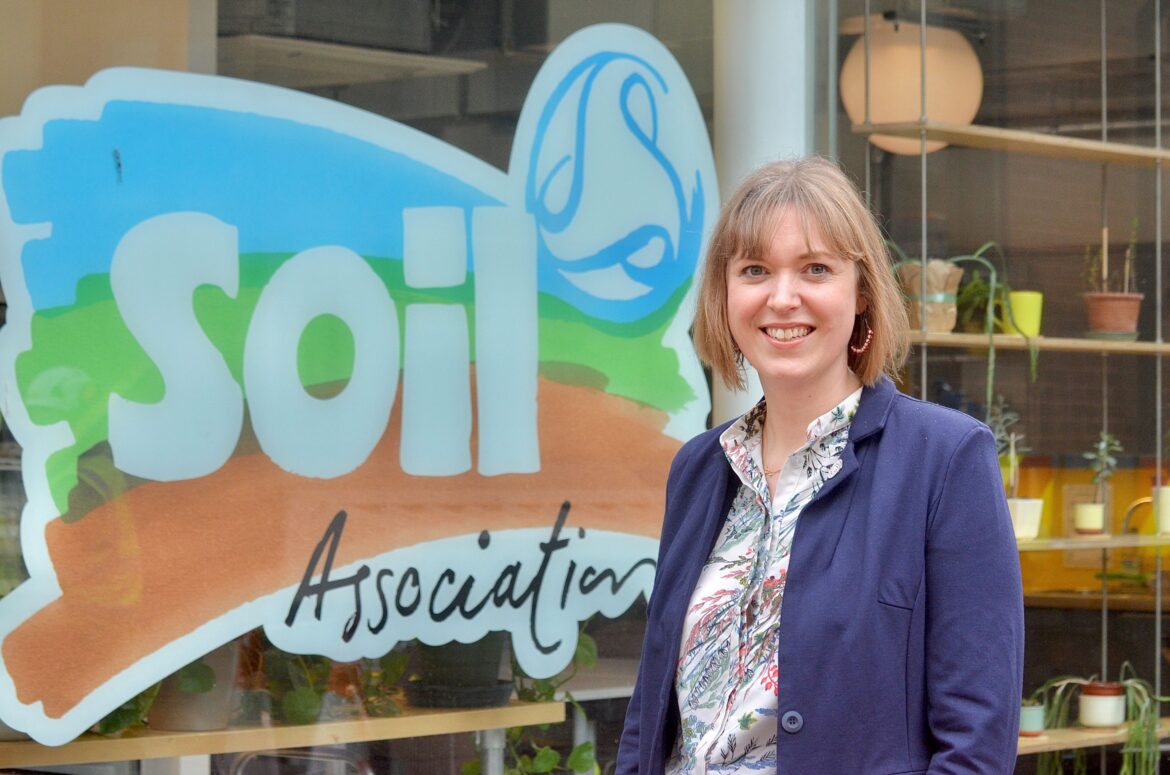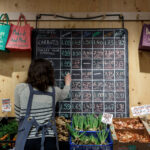The organic market grew two per cent last year to now be worth £3.2bn, with a return to growth for independent retail, recording some 10 per cent growth.
Soil Association Certification has launched the 25th Organic Market Report 2024 sponsored by RBOrganic, which revealed that the organic food and drink market has delivered its 12th year of positive growth despite the global political and economic turmoil and the cost-of-living crisis. The total market grew two per cent in 2023, ending the year at £3.2bn – almost double its value in 2011. Independent retail was named as a buoyant category, with sales rising 10 per cent to £475m.
Speaking today at the launch of the report, Alex Cullen, Soil Association Certification Commercial Director (pictured), explained that certain areas that had fallen back slightly bounced back from last year, including supermarkets and also independent retail.
“Independents I know for many of you will be a really important player in your overall performance. The channel is now worth nearly half a billion pounds, and we are seeing two thirds of respondents to our survey seeing growth and anticipating growth next year so it really has bounced back. The beauty of independents is that speed and agility and ability to operate locally and really connect locally with their customer base.”
Looking at the report more generally, Alex went on: “We have seen the cost-of-living crisis take a hit in a couple of specific areas. One is home delivery, where we have seen people cut back on what they might see as discretionary spending, and also beauty and wellbeing has fallen back for the first time this year. Having said that, there is also a strong level of confidence we are seeing from businesses in both those parts of the market. That really reflects where we are seeing broader shopper confidence start to bounce back, this is data from IGD. It’s been a pretty volatile time but where we have nutted out at the end of December 2023, we have actually seen that confidence climb back up 13 percentage points in the last 12 months. We are not out of the woods yet, and yes, there is still an awful lot of headline news that certainly takes its toll on people’s outlook on the world. But equally in terms of people’s individual household resilience and that feeling they have a bit of cash in their pocket, that is starting to come back.”
However, despite the solid performance of organic, the sector’s heavy reliance on imports means many farmers are currently missing out on the potential benefits organic can bring to their business – and the UK environment in turn is missing out on the benefits organic can bring for nature. Shopper spend on organic is a third higher versus five years ago, but UK organic farmland has stayed at a static three per cent.
Alex went on: “Organic has delivered a positive and resilient performance despite challenging financial and political conditions and without the support that organic food and farming receives in Europe and elsewhere in the world. The market and macro trends are pointing to an upward trajectory but there are still many challenges and barriers to the level of growth that UK organic should be delivering for farmers – with price the biggest barrier.
“We need a radical rethink if organic is going to reach its full potential and bring organic farming into the mainstream. The entire supply chain must work together to grow the market and unlock demand for homegrown UK organic fresh produce, supported by the government. And we can learn valuable lessons from Europe, where there is greater support and commitment from governments and retailers for farmers and from some exciting innovations taking place right here across the UK – to make organic more available and affordable.”
Continuing at the launch webinar, Alex added: “We know organic is the most trusted and sustainable practice on the table at the moment. So, something has to give in this equation and the big theme touched on by Nielsen at our trade conference in November is this piece around price, and how can we find a way to start to break down this price premium that shows up for organic and holds us back from scaling the market and transforming our agricultural land.”
In terms of further detail of the report, organic supermarket sales returned to growth after a dip in 2022, now worth £2bn, while food service, which saw exceptional growth in 2022 of 156 per cent, remained stable in 2023. Online is continuing to be a strong performer – 22 per cent of all supermarket organic sales are made through this channel.
“We saw a strong overtrade from Sainsbury’s, the market leader, and Ocado punching well above their weight. We are seeing dynamism in this space. 2023 saw further shifts in supermarket performance, with Lidl up 0.3 per cent. They are coming from an under-trade point of view, but we have seen successive growth for a little while now. We see an over index of organic online, it is twice as likely to be bought online as it is in store and really speaks to the strength of the online customer profile and also the way that user experience can punch above its weight,” Alex commented.
Organic also saw growth on Amazon with products certified to Soil Association standards enjoying a 10 per cent sales boost. Organic certified beauty and wellbeing is now worth £136m, a decline of eight per cent, although there were positive successes, such as mother and baby care, which grew 65 per cent. Organic certified textiles saw sales grow eight per cent to £100m and health and personal care grew by six per cent.
Looking at what people are buying, saes of organic fresh produce slipped in supermarkets as retailers have price-matched Aldi on conventional lines. This appears to have exaggerated the price premium on organic products, making them look more expensive to customers. Supermarket pricing in other markets, including many EU countries, have reduced the relative premium and unlocked growth in core organic lines, highlighting an opportunity for UK retailers to make organic more affordable for shoppers.
Cullen added: “Food is not a particularly profitable sector, the recent Competition and Markets Authority investigations have been clear. Of course, every player in the supply chain needs to make a profit but when price is the biggest barrier to scaling the most sustainable and trustworthy farming system we have, there need to be more questions about what it would take to achieve economies of scale. We are undertaking thorough research to understand fully what is happening and how this is impacting organic sales.
“We are committed to collaborating with the supermarkets to share and develop this kind of innovation as we come out of the cost-of-living crisis. A rebalancing of the price and availability of organic foods will drive further strong demand and unlock the benefits for people, nature and the planet.”
Focusing on the independent side of organic, Unicorn Grocery, a worker-owned co-op in Manchester, cut prices on everyday organic essentials and explicitly compared RRPs to the supermarkets to highlight value (pictured below).
Alex told the report launch webinar: “To ensure price isn’t a barrier to growth, they have taken a proactive approach of benchmarking their big organic lines, comparing how value for money they are. They have seen a really strong uptick, particularly a younger customer and a repeat customer. This has acted as a real halo to bring in footfall and drive wider sales across their store base.”
Unicorn Grocery Director, Dan Monks, advised: “We want everyone, regardless of income, to have access to staples like onions, carrots and potatoes. We price-check against supermarkets so our customers know that organic is affordable, and to shed perceptions around high costs – we’re often the cheaper option. We can do this because we buy direct from farmers and growers, working with them to plan what they grow for the year. This has allowed us to invest in local farms, securing nature-friendly farming for the future.”
A separate Organic Beauty and Wellbeing Market Report will be published in March.




